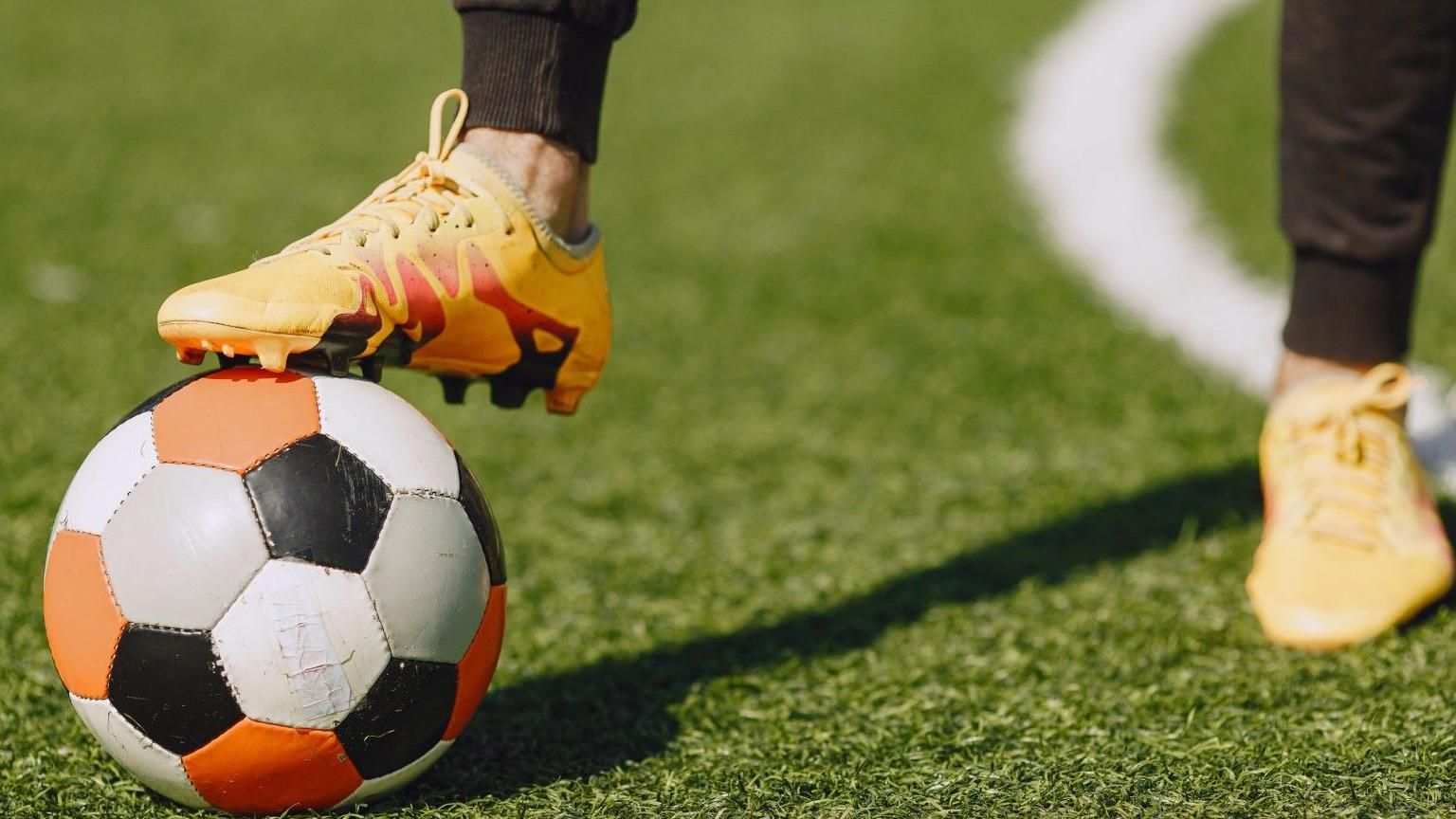Report calls for ban on artificial 3G sports pitches in Scotland

- Published
A new report has called for artificial 3G sports pitches to be banned in Scotland due to potentially cancerous chemicals contained within them.
The study by Stirling University stated that crumb rubber infill on pitches across the country should be replaced with alternative material.
Scottish sports bodies are too reliant on information "lagging behind the science" according to the report, which added that the Scottish government was "procrastinating" on the problem.
The Scottish government told BBC Scotland News that no alternative options were as "effective" as the current 3G pitches in use.
The rubber used in 3G pitches is often from used car tyres, which can contain chemicals such as lead and mercury that are possibly carcinogenic.
The European Commission has targeted 2031 to ban crumb rubber infill from sports pitches but neither the UK nor Scottish government have set a similar timeframe.
The new study is authored by Prof Andrew Watterson, a public health researcher at the university's faculty of Health Sciences and Sport.
He told the BBC that as "there are no safe levels for carcinogens" crumb rubber should be "phased out" and replaced by natural grass or materials such as cork.
'Deeply flawed'
Prof Watterson stated: "Evidence on crumb rubber chemical health and environmental hazards as well as risk assessment gaps indicate a tougher precautionary and prevention strategy on synthetic pitches in Scotland is essential.
"There are so many chemicals now recognised in plastics, many unregulated, that this renders individual health and environmental risk assessments of known hazards too slow, complicated and impractical."
Prof Watterson added that the research used by governments and sports bodies was "often seriously outdated and deeply flawed, lagging well behind the latest international research available."
This claim was refuted by the Scottish government, which said "at least 95% of the material in use falls within the limits set in restriction under EU Reach (Registration, Evaluation, Authorisation and Restriction of Chemicals)."
A spokesman added: “There are currently no widely available alternative infill products with proven durability on the market that are as effective, suitable for all UK weather conditions and deliver the required performance standards."
Lewis Maguire and his father Nigel
Prof Watterson's study, titled Crumb Rubber in Sports Pitches in Scotland: A Case Study: Can Continued Use Be Justified?, also cited the negative impact of crumb rubber on the environment, as it is a source of microplastics and nanoplastics that do not degrade.
A report by the UK government's Department for Environment Food & Rural Affairs (DEFRA) on crumb rubber and microplastics is due to be published in 2025.
Campaigners in England have called for a ban on the pitches since 2016, when a teenage goalkeeper in Darlington was diagnosed with Hodgkin lymphoma.
Lewis Maguire died in March 2018 and his father Nigel previously stated his belief that chemicals contained in shredded rubber on the pitches contributed to his son being diagnosed with cancer.
However, Newcastle coroner Karen Dilks concluded that Lewis died of natural causes and complications from cancer surgery.
The Sports and Play Construction Association referred BBC Scotland News to a statement on its website, external from December 2023, published by the organisation and a number of sports bodies, including sportscotland.
It stated that artificial pitches were "an integral part of modern community sport" but that the organisations "understand" concerns raised.
The statement added: "Any of the alternatives to rubber crumb are new to the market, and little is known about their performance, durability, availability, lifecycle cost and, importantly, the impact on player experience."
Stefan Diderich, chief executive at EMEA Synthetic Turf Council (ESTC) said a number of independent scientific studies had shown that there were no health risks associated with European-sourced rubber infill, with a major pan-European study having taken place in the last four years.
He added: "The European Commission’s decision to ban the sale of synthetic and recycled infill such as ELT rubber from 2031 is part of a wider environmental strategy to reduce microplastics.
"The same rules also apply to other product categories such as cosmetics, and detergents, and have nothing to do with any potential health concerns.
"We fully support the use of sustainable alternatives to granular rubber infill, with a number of natural infills such as cork, processed olive stones and wood chip already available on today’s market."
He added that banning 3G pitches in Scotland would "seriously harm the provision of sports facilities across the country".